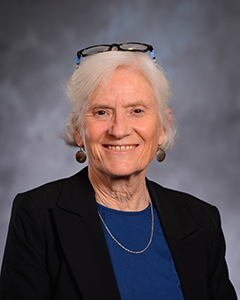[lead]The Rogue River Room at Southern Oregon University was filled to capacity recently as residents gathered prepared to give members of the Ways and Means Committee a piece of their minds. Over the next 2½ hours, 60 speakers described the impact that state funding has on the programs and institutions that affect their lives — schools, group homes, school-based health centers, community colleges, health care clinics, veterans’ services, and on and on. They were thoughtful, articulate, plaintive and passionate about the need for funding to support individuals, families and the local community.[/lead]
This month the Legislature heard a revised budget forecast that predicts additional revenues of about $200 million for the coming biennium. That’s great news and affirmation of an economy that’s going strong. But it doesn’t change the basic trajectory of a budget that’s $1.6 billion in the hole. Without a revenue infusion, we will be unable to provide any meaningful response to the Oregonians who have implored us for help.
Our budget woes reflect the fundamental quandary: the underlying tax system that supports public services in Oregon is structurally inadequate and functionally outmoded.
The corporate income or excise tax, which provides 5 to 6 percent of the state’s general fund, is paid by those businesses that are classified as C Corporations. But over the past 15 years, Oregon has seen a decline in C Corporations from 35,500 in 1990 to just under 30,000 today.
This shift reflects a nationwide trend and is accompanied by a corresponding increase in other business types, including sole proprietorships, partnerships and other types of corporations that file under the personal income tax code. Unfortunately, we have eroded both the personal and corporate income taxes with loopholes and credits that diminish income and encourage entities to play accounting games with their bottom lines.
As a result, over time, corporate income tax has declined as a share of the income tax from about 18 percent in the mid-’70s to about 6 percent today.
If we had a more diverse tax structure, including a sales tax, we could probably survive the decline of corporate income tax. But without a sales tax our fortunes rise and fall on income tax revenues. When those revenues stagnate or drop, we have no back-up plan. Without an alternative source of revenue, our budget — and the important services that we fund — is extremely vulnerable to economic fluctuations. In other words, if the economy sneezes, our schools and our children get put on life support.
We could tinker endlessly with the corporate income tax — or we could throw it out and start over. Frankly, the latter option looks attractive, especially given the excessive complexity of the tax in its current form.
Recognizing that the status quo is increasingly anachronistic, the Legislature is beginning a conversation around possible alternatives.
Any discussion about replacing a tax that’s been with us since 1929 needs to start with a shared understanding about what we need out of our tax system. That list inevitably includes:
- Adequacy: We need enough revenue to support the services we all depend on, such as law enforcement, education and health care.
- Stability: Revenues must be dependable and predictable.
- Simplicity: Businesses should be able to calculate taxes without hours of expert assistance.
- Equity: Each of us should pay a fair share of the tax burden.
Furthermore, we know that a broad tax base (that is, a high number of entities paying in) allows us to set a low tax rate. Simply put — when more people pay, everyone pays less.
Clearly, any proposal to significantly change the state’s tax system would require thorough vetting and vigorous debate. It is not at all clear that we have the political stomach for that conversation.
But the hard truth is that, sooner or later, we must acknowledge that the tax system that we created nearly 100 years ago is no longer adequate or equitable for our 21st century needs. If we want to provide stable, sufficient support for the services that Oregonians want and need, we have to do something different.
We will have to be bold. I invite your participation in this conversation as we go forward.
— State Rep. Pam Marsh represents District 5, including Ashland, Jacksonville and parts of Medford, in the Oregon Legislature.
